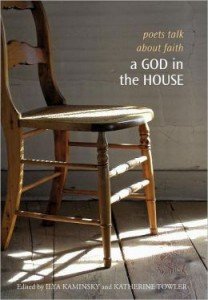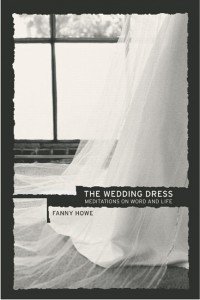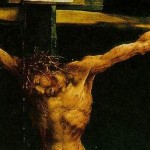
I’d like to enlist the poet Fanny Howe in the service of defending Eagleton’s characterization of humanity as “the scum of the earth.”
I didn’t make that phrase up, I borrowed it verbatim from the title of the first chapter of Reason, Faith, and Revolution.
What Eagleton said is not a term of opprobrium. It is a realistic assessment of life for those of us who do not inhabit a ship of the imagination.
Meaning: everyone including deGrasse Tyson when he’s not on set.
According to Fanny Howe, whom I consider one of our greatest living religious poets, the liturgy is revelatory in this regard:
“If I can only be horrified by reality, then I will have to kill myself. If I find it recognizable, I will be okay. The liturgy helps me to recognize the world and time. While the Eucharist is totally mad in terms of human reason, the ritual has another kind of intelligence, one that manages to be both earthy and cosmological. Metaxu–Simone Weil’s ‘Every separation is a link’–a bridge that you rarely cross outside of rarely cross outside of reality.
The calendar year for daily working life is the same for all of us, but there is a second calendar: the church calendar that refers to the birth, murder, and resurrection of Jesus, which is an absolutely archetypal story, a poetic rendition of any human life. The Mass, with its readings from the Gospel stories, and the the Eucharistic rite, repeated for centuries, is an account of the cooperation of transcendence with the ordinary. If it is an opiate, all the better.

To get up in the morning and go out the door and put your feet on the ground and walk: This is all the faith I know. I cannot have a spiritual moment without remembering the evils of war, poverty, and illness. So I am trapped with my one eccentric action, going to Mass to think about people I care for who are gone. If I think very hard about them, I call it prayer. I am safe in the building where I and other people can hide and concentrate on the possibility of change.
So-called spirituality is not the point of the Mass. There is as much of that in a pub on a rainy day, or on an underground train. Most of us know what is meant by suffering, pain, poverty, disease, oppression, betrayal by friends and politicians, illegitimate birth, imprisonment, and the insignificance/vulnerability of a powerless person. These are contained and contemplated in the readings at Mass, and then comes the Eucharist, and of that: the less said the better.”
This and more can be found in Howe’s essay “Footsteps Over Ground” in the collection A God in the House: Poets Talk About Faith. You can find more of Howe’s unconventional prose meditations on being Catholic in The Wedding Dress: Meditations on Word and Life. Her Selected Poems are a good place to start on her poetry. Finally, there’s also Radical Love, a collection of five strange novels.












